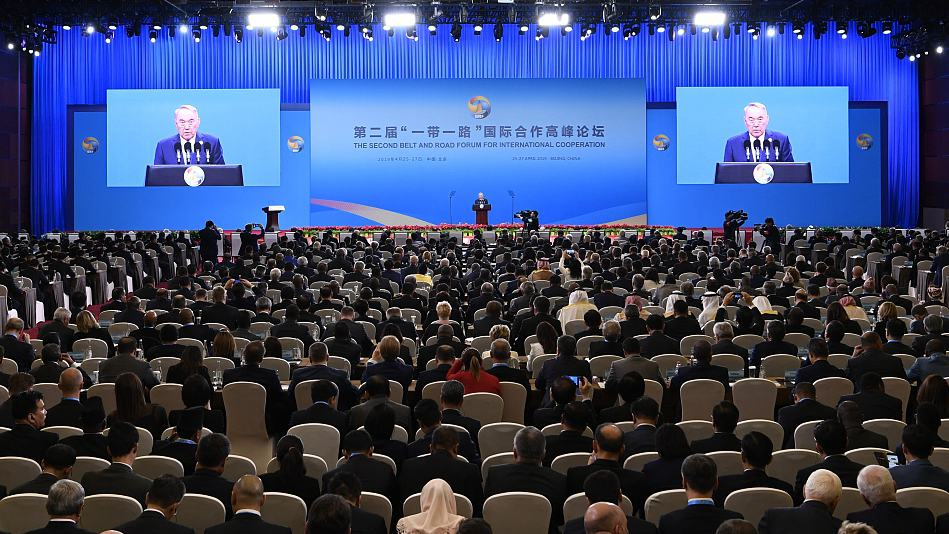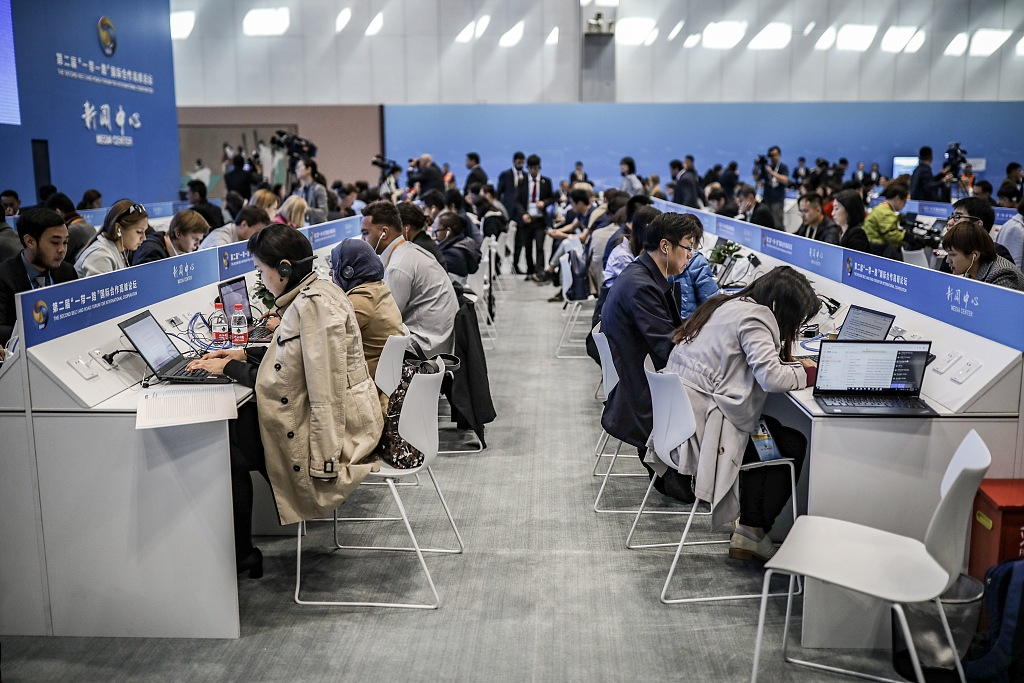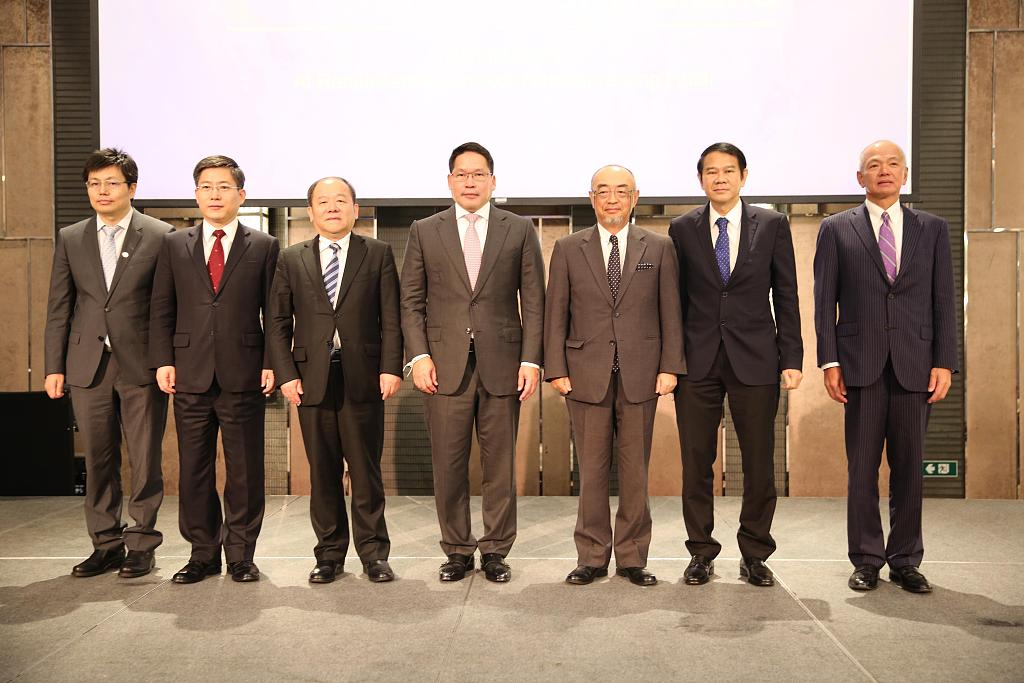
Opinion
23:07, 27-Apr-2019
Third-party market cooperation optimizes global resources allocation
Ke Yinbin

Editor's note: Ke Yinbin is a senior researcher at Charhar Institute. The article reflects the author's opinion, and not necessarily the views of CGTN.
Delivering a keynote speech at the second Belt and Road Forum for International Cooperation, Chinese President Xi Jinping noted, "we welcome the participation of multilateral and national financial institutions in BRI investment and financing and encourage third-party market cooperation. With the involvement of multiple stakeholders, we can surely deliver benefits to all."
Third-party market cooperation mainly refers to partnerships between Chinese companies and their counterparts in developed countries to do business in markets in the developing world, namely the third party. It can effectively align China's advantageous production capacity and developed countries' advanced technology with developing countries' needs.
Such cooperation has so far become an important part of the BRI and is very much encouraged. This is because third-party market cooperation contributes to better implementation of the principle of achieving shared growth through discussion and collaboration, and serves as a new model for cooperation between companies in China, in developed countries and in other Belt and Road countries as well.

Chinese and foreign media work at the news center during the second Belt and Road Forum for International Cooperation in Beijing, April 26, 2019. /VCG Photo
Chinese and foreign media work at the news center during the second Belt and Road Forum for International Cooperation in Beijing, April 26, 2019. /VCG Photo
Since the BRI was initiated, President Xi has attended a number of events regarding third-party market cooperation between China and developed countries. The Chinese government, a committed advocate of such strategic alliance, has signed related documents with France, Italy, Spain, Japan, Portugal, etc. Chinese enterprises should develop a better understanding of the logic behind BRI third-party market cooperation, take swifter actions and make more investment.
The first is the logic of business and trade. Third-party market cooperation is commercial in nature and therefore should be carried out in line with the basic market rules. Companies on both sides, as legal entities, need to identify areas for cooperation and shared interests through communication and consultation based on their own strategic standing and values.
After this, feasibility research of specific cooperation projects should be conducted to explore whether the two parties are resourceful and capable enough to fulfill their shared interests. Provided that positive outcomes are produced from these activities, the two sides may jointly develop project plans, make investments, and move towards the implementation.
Otherwise, they could either explore new areas of cooperation or seek new partners separately. In third-party market cooperation, commercial interests are the top priority. The key to cooperation is common interests. No interests, no cooperation.

An international seminar on China-Japan third-party market cooperation in the eastern economic corridor of Thailand was held in Bangkok, May 31, 2018. /VCG Photo
An international seminar on China-Japan third-party market cooperation in the eastern economic corridor of Thailand was held in Bangkok, May 31, 2018. /VCG Photo
The second is the logic of cooperation. Cooperation is a practice or a process where the two parties or multiple parties of the cooperation continually invest resources in business operations. It is commonly referred to as "building shared growth."
In third-party market cooperation, parties involved should be Chinese companies and their counterparts in developed countries. It would be even better if it is also joined by local companies in third-party states. With their respective strengths, these companies could enter into a mutually complementary relationship.
Enterprises in developed countries have advantages in formulating standards and rules, core technologies and globalized management; Chinese companies have advantages in cost innovation, production and manufacturing, and engineering construction; and third-party developing countries are experienced in dealing with the local market, familiar with the local culture and able to offer cheap labor. Moreover, all parties involved in the cooperation have different resources and capabilities, which lay the foundation for the realization of common goals and shared interests.
Of course, the possibility of cooperation also depends on the strategic consideration of companies in China and in developed countries, as well as the preferences of the policymakers. In other words, all parties are willing to make continuous investment in terms of both resources and capabilities. Only when all subjective and objective conditions are met can cooperation be conducted.
The third is the logic of history. Which type of third-party market cooperation stands the greatest chance of success? For the moment, it is difficult to come up with a definite answer due to the rarity of established cases. But the role of historical factors is worth our attention.
There are two aspects to this. The first concerns the history of cooperation between Chinese enterprises and their counterparts in developed countries in the Chinese market – the longer the history, the higher the possibility of success, and vice versa.

Foreign media journalists watch the exhibition of "Belt and Road" key projects in the national foreign cultural trade base, April 25, 2019. /VCG Photo
Foreign media journalists watch the exhibition of "Belt and Road" key projects in the national foreign cultural trade base, April 25, 2019. /VCG Photo
There's also the historical relationship between the home countries of companies in developed states and those of the third-party markets. Historical and cultural interactions between the two would make up for the disadvantages of Chinese enterprises and thus increase the chance of successful third-party market cooperation.
The fourth is the logic behind the government-business collaboration. At present, it is the Chinese government that promotes third-party market cooperation. The practice of the Chinese government is to sign cooperation agreements with its counterparts in developed countries and to make government leaders attend signing ceremonies when business agreements between enterprises are sealed.
This is undoubtedly an effective approach. However, in third-party market cooperation, companies are the major players. Only with the participation of companies on both sides can concrete progress be made.
To date, China has held bilateral symposiums and forums with France and Japan over third-party market cooperation, which were attended by government officials and representatives of businesses involved. While this is undeniably helpful, it would be better and more productive if governments and companies in third-party market countries were also engaged. Thus, the logic of behind government-business collaboration should be well considered.
All in all, third-party market cooperation offers a new model for international collaborations that serves the interests of all parties and will lead to a situation of "1+1+1>3." It inspires more developed countries in the West to participate in the BRI, optimizes the global resources allocation, and shows China's commitment to strengthening global partnerships to the world.
(If you want to contribute and have specific expertise, please contact us at opinions@cgtn.com.)

SITEMAP
Copyright © 2018 CGTN. Beijing ICP prepared NO.16065310-3
Copyright © 2018 CGTN. Beijing ICP prepared NO.16065310-3